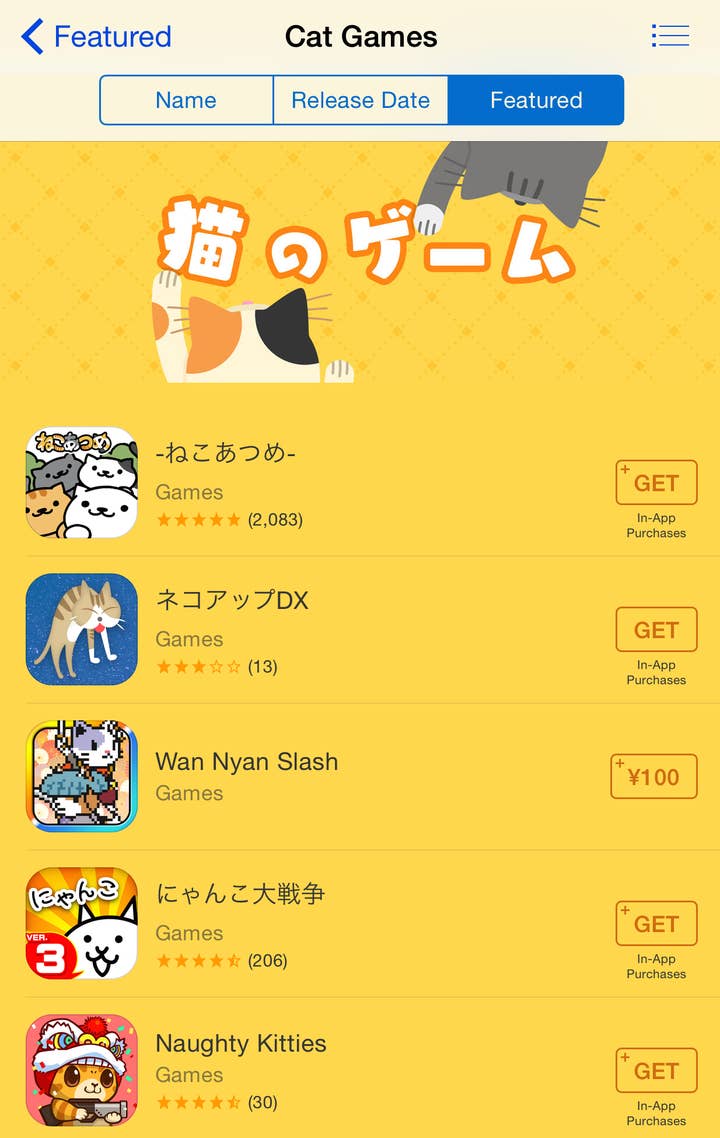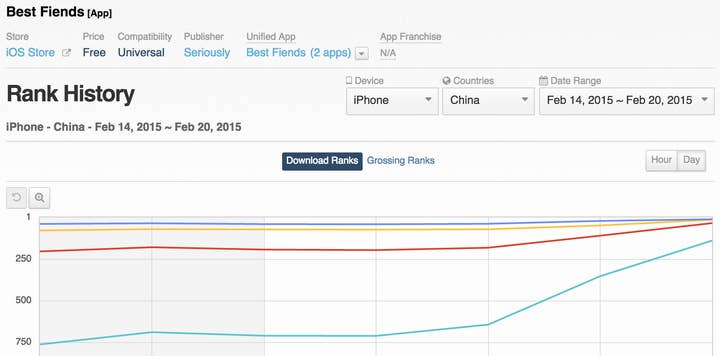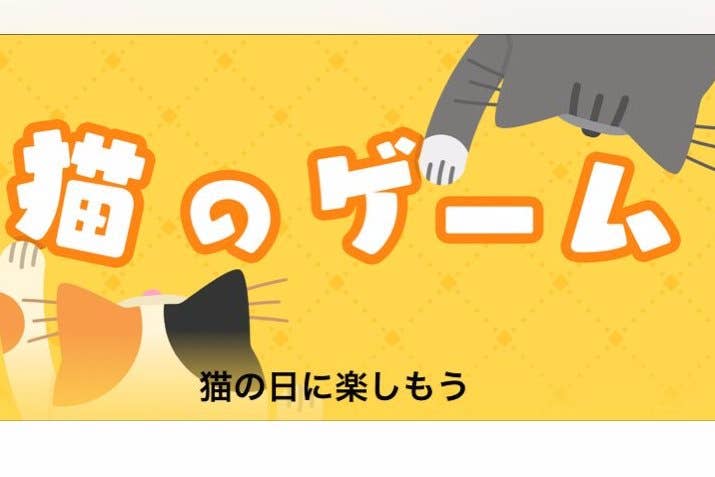The Year of the Sheep, the Day of the Cat
A belated Happy Chinese New Year from Shintaro Kanaoya
February 19th marked the Chinese New Year, this year ushering in the Year of the Sheep (or Goat, depending on which side of the farmyard fence you're happy to fall on - the confusion is genuinely "a thing"). In the same way that those in the West mark Thanksgiving or Christmas, Chinese New Year is the world's most populous country's big occasion: a time to spend with family and friends and a rare occasion to get away from the hustle, grind, and pollution of daily life.
Less well known is that three days later, a superhuman stone's throw from China, the Japanese have started celebrating The Day of the Cat. Why one day and why cats? Well, the Japanese are fond of puns and wordplay, and February 22nd - 2/22 - is a day that can be spoken as "nyan nyan nyan," with "nyan" being the equivalent of "meow" in English. Hence "Neko no Hi" - the Day of the Cat - has fallen on this day ever since someone at the Japanese Cat Institute decided it would be a good idea back in 1987.
Japan has long played with numbers and assigning them meaning, or simply using them to be memorable. Every number can be read a few different ways, and the first letter is often used as a mnemonic for phone numbers, similar to things like 1-800-MYAPPLE for Apple's customer line in the US. For example, Sony released the PlayStation 3 on March 4th, 2000, which in the Japanese Imperial calendar, was Heisei 12. Japan writes dates as Year/Month/Day, meaning that the PS3 arrived on 12/3/4. Number geeks, rejoice.
Why should you, as leaders and followers of the games industry, care? Because understanding and capitalizing on global cultural events and fads is a key differentiator for those wishing to succeed in other markets. We see this all the time with things like Valentine's Day, Christmas, Thanksgiving (and increasingly on both sides of the pond, Black Friday). Tapping into cultural touchpoints in your games can create bonds with your audience around something relevant and contemporary, bringing a freshness that is appreciated by players everywhere.
There is also a more pragmatic reason to tap into these events: platform-holders care about them, and use them to engage their users. Case in point: Apple Japan decided to utilize the Day of the Cat to create a specific promotion: "Games about Cats."

This promotion ran for two weeks, and brought together a collection of previously released games, all focused on our furry friends, with games coming in a variety of styles and genres. Unlike a typical promotion that might focus on a game style, like "racing games" or "strategy games," the Day of the Cat brought together a somewhat eclectic collection of games, with nothing in common except cats. Users were greeted with a Pokemon-style cat collection game, a Fruit Ninja-ish Cat Samurai game, a cat-themed Tower Defence, and other, even more peculiar cat-styled games.
The top game promoted by Apple in their CATalogue (sorry) is Neko Atsume, which is about as does-what-it-says-on-the-tin title as any, translating as it does to "Cat Collecting". Neko Atsume was released in Japan by Hit-Point Co., Ltd, last October. The game started gaining traction two months later at their third update, and by Feb 16, it was already #30 in the overall App Store in Japan, so it's certainly not a game that needed the help of a dedicated Cat-themed promotion. It had ascended to #17 the day before the promotion started, but being promoted as "the #1 cat game" within Apple's front of store Cat Day promotion saw it enter the top 10 at #8, breaking into the top grossing charts accordingly. After that, it continued to climb until, on March 1, it became the #1 download on the entire Japanese App Store.
The #2 game in the promotion had a more marked bump, if not quite reaching the same dizzying heights. Neko Appu DX ("Cat Up DX") puts a new spin on the well-worn theme of UFO cat abductions ("What, another!?" I hear you cry). Developed by Japanese indie Ryuji Kuwaki, it is, I kid you not, the latest in this series of cat abduction games.

This game was launched mid-November last year, and managed to get to #260 in the Japanese All Games charts on its second week. This was followed by a bump a couple of weeks later with a "Best New Games" feature, but since then, it has languished for two months outside of the top 1,000 - even threatening to fall out of the Family Games chart where it had enjoyed a #19 rank in December. Apple then selected it for inclusion in their Cat Games promotion and, overnight, it rebounded back up the charts to its highest position ever, reaching #17 in the Family Games chart and #162 in All Games.
It's almost certain Neko Appu's February rebound is due to being a game included in a home page promotion on the App Store, and not because of a groundswell of feline fervour amongst the Japanese. There's no public holiday for Cat Day in Japan, and no cat parade along Tokyo's streets, but that misses the point. Apple Japan found a culturally relevant reason to re-promote games that had already been around for a while, and also ensure that Japan's iOS users would keep coming back to the App Store by tapping into the local zeitgeist.
Now, maybe you don't have, or were never planning to make, a game about cats. Why should you care? Because perhaps you could have capitalized on this by putting in a one-off feline character, or a special level where all the enemies are cats, or something else purrfectly suited to the occasion. While that might not have gotten your game included in Apple's list, it would certainly show your users in Japan that you're with them, that you're in on the joke, and deliver back to your game that all important affinity, the shortening of the gap between game-maker and game player.
The Day of the Cat is just one of many examples of how local knowledge can and should be used to your advantage. Some of the world's canniest developers are using these to catapult their games in all important markets. A recent case in point: Seriously released an appropriately-timed Chinese New Year update to Best Fiends, introducing 10 new themed levels, complete with new hub, appropriate music, and perhaps most importantly, by re-engaging the player, they created more opportunities to drive retention and monetization.

This also gave Apple very good reason to re-promote the game on the Chinese App Store, and other smart publishers and developers similarly took advantage of the festivities.
Seriously made a strategic bet, to commit resources in order to capitalize on the biggest event in the Chinese calendar, and use it as a platform to boost their chances in the second biggest mobile games market in the world. Did the investment pay off? The rise in chart position certainly seems to suggest so.

On February 17, Best Fiends sat at #708 on the overall Chinese App Store, and #196 in Overall Games. Three days later, the game jumped nearly 600 places on Overall to #139, and to #35 in Games. During the same period, the game actually dropped in the rankings in the US, from #1,130 to #1,259, on the back of the very same update. The Chinese New Year content - which was available globally - had a very significant impact in China, and in case you hadn't been paying attention, China's kind of a big deal.
The strategy of capitalizing on cultural events, employed by Apple Japan to promote cat games and by Seriously to promote Best Fiends, should be familiar to everyone. As soon as October rolls around, supermarkets start bringing in Christmas goods. As soon as the January sales are done, Valentine's is used to have us consuming chocolate, wine, and flowers by the bucketload. No sooner are the Lindors consumed, Easter eggs and bunnies start multiplying like, well, rabbits. Likewise, digital stores, especially on mobile platforms, are increasingly employing the same tactics to drive digital footfall. Developers that understand and are able to capitalize on them are best-placed to get themselves to the front of the stores, and into the eager hands of consumers.
Oh, and if you're more of a dog person? 11/1 (November 1, one-one-one, or "wan wan wan" if you're a Japanese dog) is the Day of the Dog.
Shintaro Kanaoya is Founder and CEO of Chorus Worldwide, publisher of Western-developed games in Japan and across Asia.
